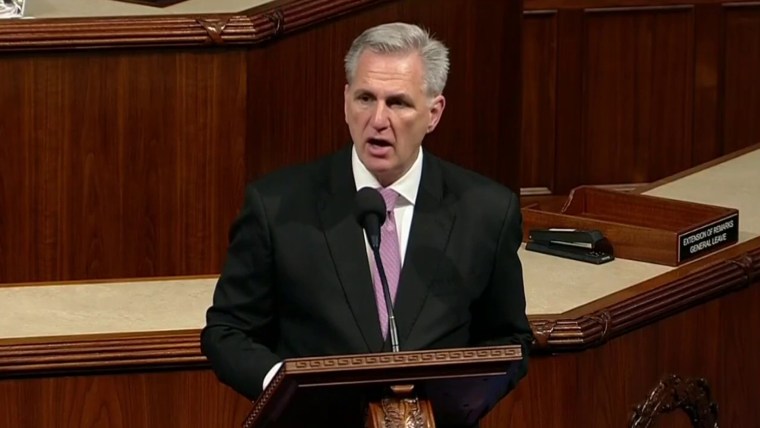[ad_1]
WASHINGTON — Treasury Secretary Janet Yellen said Monday that the deadline to extend the debt ceiling or face the first U.S. default could be as early as June 1, adjusting the timeline as the path to averting a self-inflicted crisis remains murky on Capitol Hill.
“After reviewing recent federal tax receipts, our best estimate is that we will be unable to continue to satisfy all of the government’s obligations by early June, and potentially as early as June 1, if Congress does not raise or suspend the debt limit before that time,” Yellen wrote in a letter to Congress.
But Yellen emphasized the uncertainty surrounding the issue and noted that it could slide to “a number of weeks later” than that.
“This estimate is based on currently available data, as federal receipts and outlays are inherently variable, and the actual date that Treasury exhausts extraordinary measures could be a number of weeks later than these estimates,” she wrote.
The new cutoff window gives Congress a narrower timeline to hammer out a solution after Yellen previously said the deadline was June 5. It is common for the Treasury Department to adjust the “X date” for when money runs out, based on tax collections that fluctuate and can be hard to predict. This new date is also expected to be updated as the deadline nears.
The U.S. hit the statutory borrowing limit in January and has since been using “extraordinary measures” to pay the bills. Some outside experts — and members of Congress — had expected a longer time window before the true deadline.
Yellen’s letter comes as the Republican-controlled House remains at odds with the Democratic-led Senate and President Joe Biden about the way forward.
Speaker Kevin McCarthy recently passed a party-line bill to extend the debt limit for one year while rolling back parts of Biden’s clean energy agenda and imposing a series of unspecified spending cuts. But Senate Majority Leader Chuck Schumer has blasted that bill as a path to default and vowed to hold hearings highlighting “the damage” it would do.
The House GOP-led bill calls for slashing discretionary spending to fiscal 2022 levels and impose a 1% growth cap for the next decade. Many Republicans say they don’t want to reduce military spending, which means their proposed cuts would target the 15% of the budget that includes funding for education, job training, air travel and rail safety, law enforcement and veterans’ benefits.
Democrats argue that if implemented, the GOP bill would force cuts to the Department of Veterans Affairs. Republican leaders say the legislation doesn’t necessitate that, although they haven’t detailed what programs they would cut or eliminate.
“It is impossible to predict with certainty the exact date when Treasury will be unable to pay the government’s bills, and I will continue to update Congress in the coming weeks as more information becomes available,” Yellen wrote Monday in the letter. “Given the current projections, it is imperative that Congress act as soon as possible to increase or suspend the debt limit in a way that provides longer-term certainty that the government will continue to make its payments.”
[ad_2]
Source link

